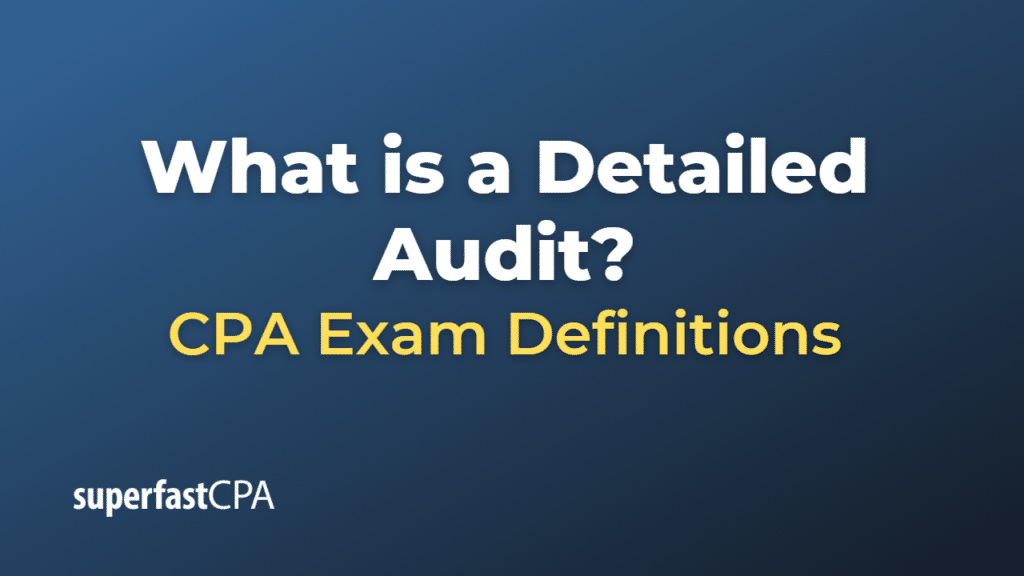Detailed Audit
A detailed audit, also known as a comprehensive audit, is an in-depth examination of an organization’s financial records, systems, transactions, and operations. The purpose is to verify the accuracy and completeness of the financial statements and ensure compliance with accounting standards, regulatory requirements, and internal policies.
Here’s what a detailed audit typically involves:
- Planning and Risk Assessment: This includes understanding the organization’s business and industry, its internal control systems, and areas where there might be a high risk of material misstatement in the financial statements.
- Internal Control Testing: This involves evaluating the effectiveness of the organization’s internal control procedures. Auditors might perform walkthroughs or other tests to assess whether internal controls are functioning as intended.
- Substantive Testing: This is the examination of transactions, balances, and procedures. It includes tests of details (verifying the accuracy and legitimacy of detailed data that make up the financial statements) and analytical procedures (looking at trends and ratios and comparing them with industry or prior period figures).
- Reporting: After the audit is completed, the auditors provide an audit report, which includes an opinion on whether the financial statements are presented fairly and in accordance with the applicable financial reporting framework.
A detailed audit is usually performed by independent external auditors. It can be a time-consuming and costly process, but it provides a high level of assurance about the accuracy and reliability of the financial statements. This can be valuable to stakeholders such as investors, lenders, and regulators. It’s also required for publicly traded companies in many jurisdictions.
Example of a Detailed Audit
Let’s consider a simplified example of a detailed audit for a manufacturing company.
- Planning and Risk Assessment: The auditors review the company’s business and the industry in which it operates. They identify key areas of risk, such as inventory valuation, accounts receivable collection, and recognition of revenue. They also look at the company’s internal control systems and identify any potential weaknesses.
- Internal Control Testing: The auditors carry out a series of tests to check the effectiveness of the company’s internal control systems. For instance, they may review procedures for approving purchase orders, receiving goods, and recognizing related expenses to ensure these are done correctly and consistently.
- Substantive Testing: Here, the auditors perform detailed testing of transactions and balances. For example, they might select a sample of sales transactions and trace them through the system, from the initial customer order to the recording of the sale in the financial records, and ultimately to the collection of cash. They also check that revenue is recognized in the correct accounting period. For inventory, they might physically count a sample of items and check these against the records. They also review the method and calculations used for inventory valuation to ensure these are correct and consistent with accounting standards.
- Reporting: After completing all tests, the auditors prepare an audit report. Assuming they found no major issues, they would issue a “clean” opinion, stating that the financial statements give a true and fair view of the company’s financial position and performance, in accordance with applicable accounting standards. If they did find significant issues, they would describe these in their report and may qualify their opinion or issue an adverse opinion, depending on the severity of the issues.
Remember, this is a simplified example. A real detailed audit would be much more comprehensive and would also involve assessing things like tax liabilities, contingent liabilities, depreciation and amortization methods, and so on. Also, while the audit provides a high level of assurance, it is not a guarantee that the financial statements are 100% free from material misstatement.













